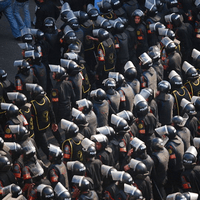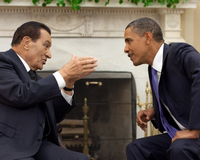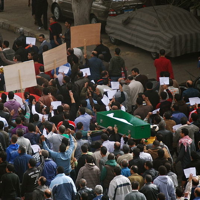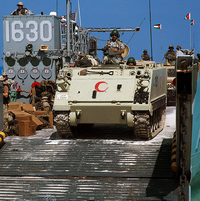
One simple rule of revolution is that regimes fall when their security services refuse to fire on protesters, while uprisings often falter when security forces do go ahead and shoot. The situation in Egypt remains fluid, but thus far the Egyptian army has not violently put down the protest movement. Why? The answer is complicated. Mark Thompson argued at Time’s Swampland blog that the exposure of Egyptian military officers to norms of professionalism and civilian control in the United States may have been determinative in the Egyptian army’s decision not to crush the anti-Mubarak protests. Thompson’s argument draws on several […]





